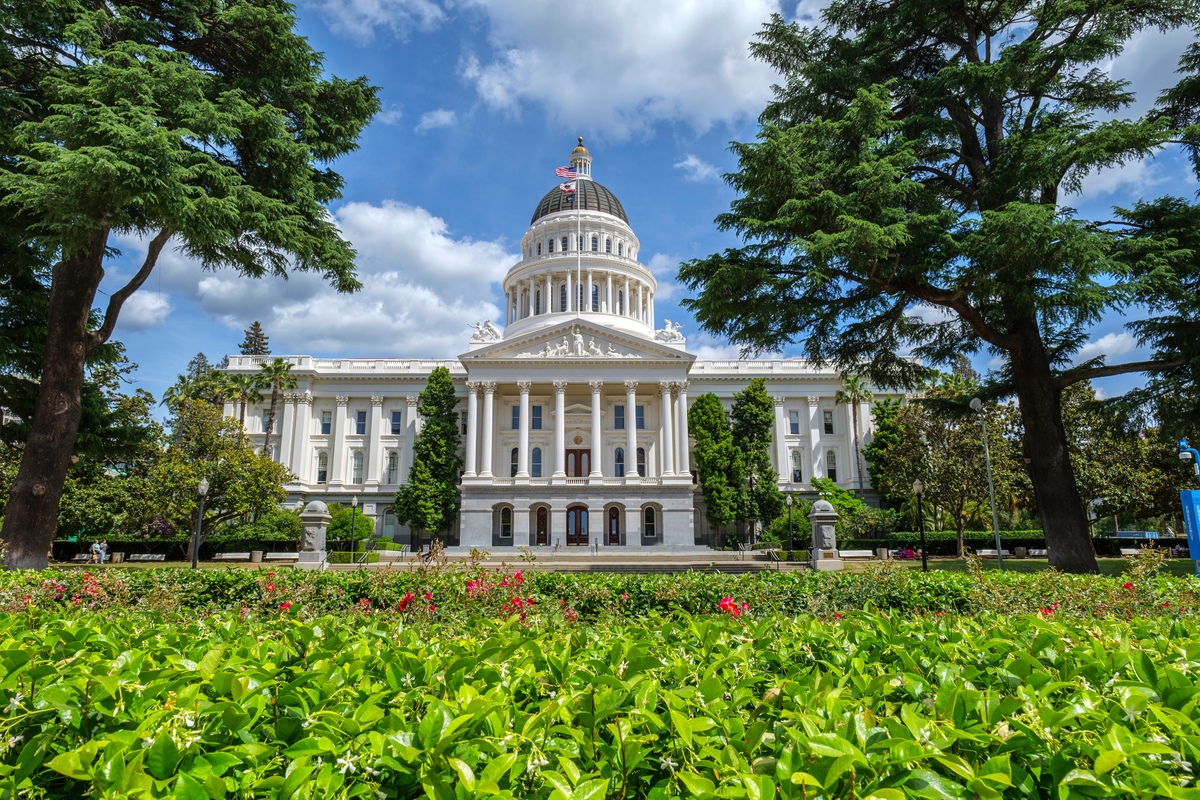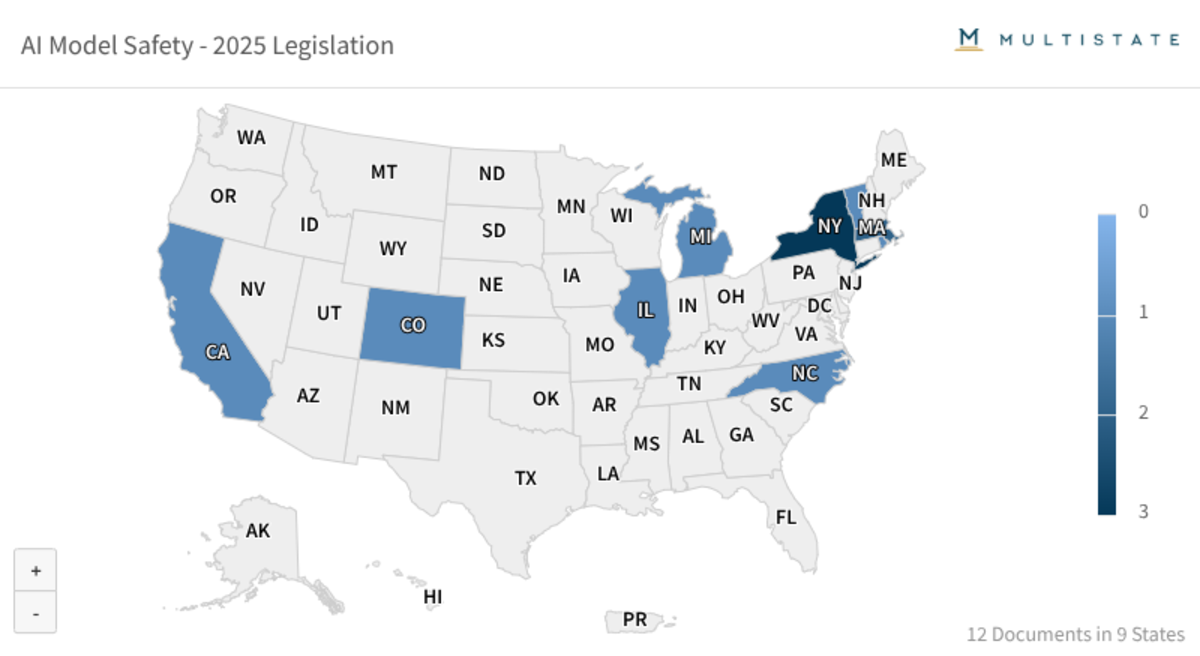
Technology & Privacy
How AI-Generated Content Laws Are Changing Across the Country
February 12, 2026 | Max Rieper
October 9, 2025 | Bill Kramer

Key Takeaways:
California Governor Gavin Newsom (D) signed into law a first-of-its-kind AI safety bill. What makes a bill like this different is that instead of targeting the “deployers” of artificial intelligence tools (e.g., businesses using the tools to interact with customers), Senator Wiener’s (D) SB 53 imposes certain requirements on the AI model “developers” themselves (e.g., OpenAI, Google, Anthropic). Last year, Gov. Newsom vetoed a similar bill (CA SB 1047) from Sen. Wiener, which attracted a massive amount of media and lobbying attention.
After the veto of SB 1047, we predicted at the start of 2025 that the broad consumer protection AI bills, such as last year’s SB 205 enacted in Colorado, would be the focus of state lawmakers in the “Year of AI Policy.” But it turns out that these consumer protection bills failed to gain traction, and even Colorado lawmakers decided to delay implementation of their first-in-the-nation law. Instead, last year's biggest AI regulatory defeat made a spectacular comeback in 2025.
Notably, these “AI safety” bills are a very small subset of the 1,102 AI-related bills we’ve tracked in the states this session. We spotted only a dozen AI safety bills introduced across nine states this year, compared to 33 broad consumer protection bills similar to Colorado’s law (and 320 bills related to AI-generated “deepfakes”).

Sen. Wiener’s SB 53 is largely a transparency law. It requires AI developers of “frontier models” (defined by a compute threshold) to publish a basic transparency report of the AI models they release and requires more expansive AI framework reports for “large” frontier model developers (defined with an additional revenue threshold of $500 million). Those frameworks would detail how the “large” model developer approaches incorporating national standards and best practices. It would define and assess the threshold to determine whether a model has capabilities that could pose a “catastrophic risk” (defined as causing serious injury to more than 50 people or $1 billion in damages), and apply mitigations to address that risk potential. An example of a potential "catastrophic risk” situation could be using a frontier AI to develop biological weapons or coordinate cyberattacks.
The framework would require reviewing assessments and mitigations in deciding whether to deploy a model, using third parties to assess potential for risk, and requires revisiting and updating the framework. Importantly, the law requires large frontier model developers to identify and respond to “critical safety incidents.”
In short, developers of the most powerful AI models will be required to publish and file with the state what type of testing and precautions it’s taking to prevent catastrophic risk. If a critical safety incident occurs internally at the company, they must report that to the state. It also includes whistleblower protections for employees and contractors working at the developer’s labs. It's a small step, but this law lays a foundation for policymakers to build from as AI technology continues to develop and potentially accelerate.
Notably, a similar bill is awaiting Gov. Kathy Hochul’s (D) signature in New York. Assemblymember Bores’ (D) RAISE Act is similar to the final version of SB 53, but because of the governor’s unique ability in New York to ask for amendments to bills delivered to her, we could potentially see New York and California’s AI safety laws become more aligned, which would help defend against accusations of a “patchwork” of state laws requiring federal preemption. We predicted that if Gov. Newsom signed SB 53 into law, it would give cover for Gov. Hochul to sign the RAISE Act as well, but we might not know that for another month or so.
This article appeared in our Morning MultiState newsletter on October 7, 2025. For more timely insights like this, be sure to sign up for our Morning MultiState weekly morning tipsheet. We created Morning MultiState with state government affairs professionals in mind — sign up to receive the latest from our experts in your inbox every Tuesday morning. Click here to sign up.

February 12, 2026 | Max Rieper

February 4, 2026 | Max Rieper

January 21, 2026 | Abbie Telgenhof